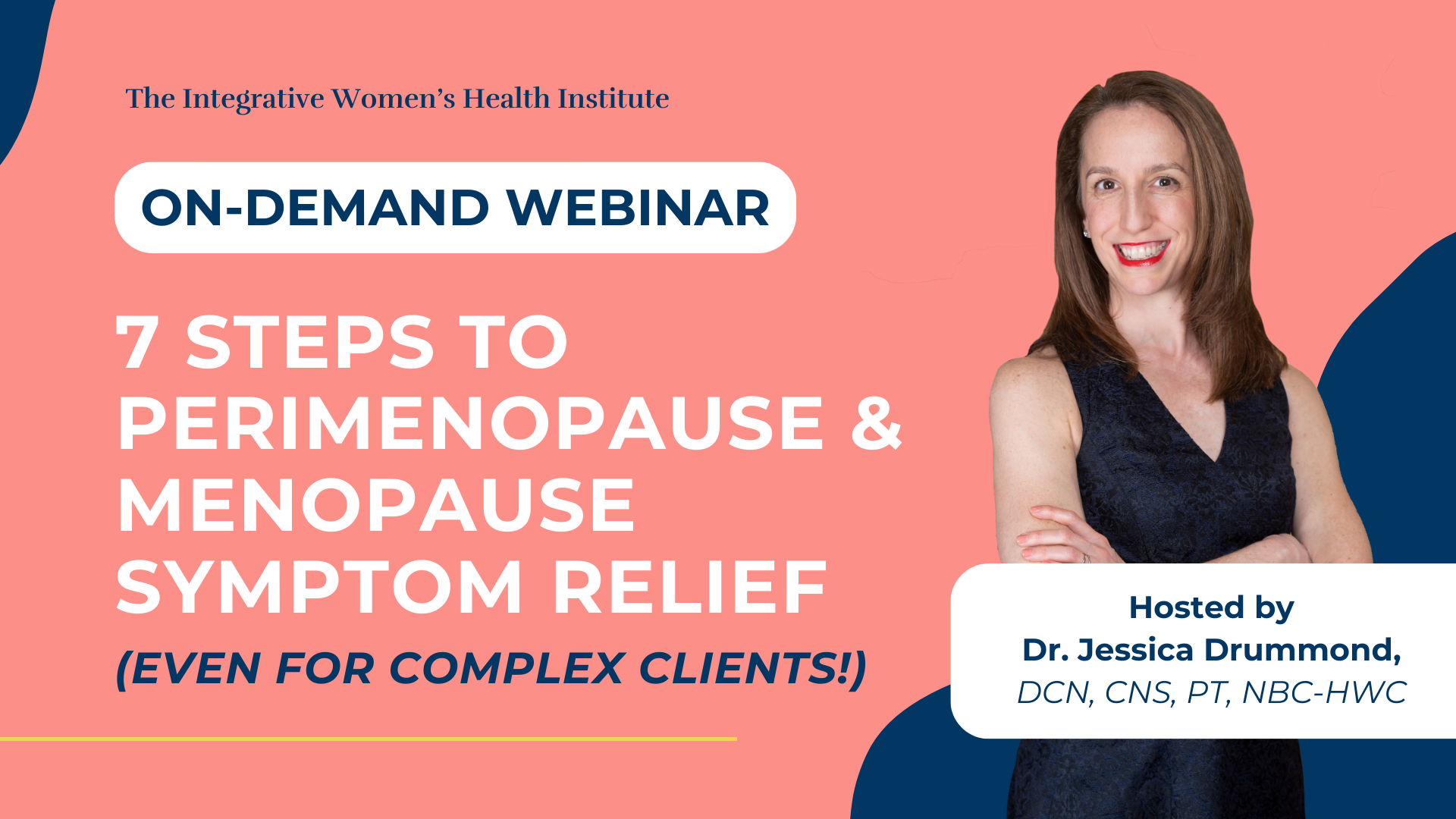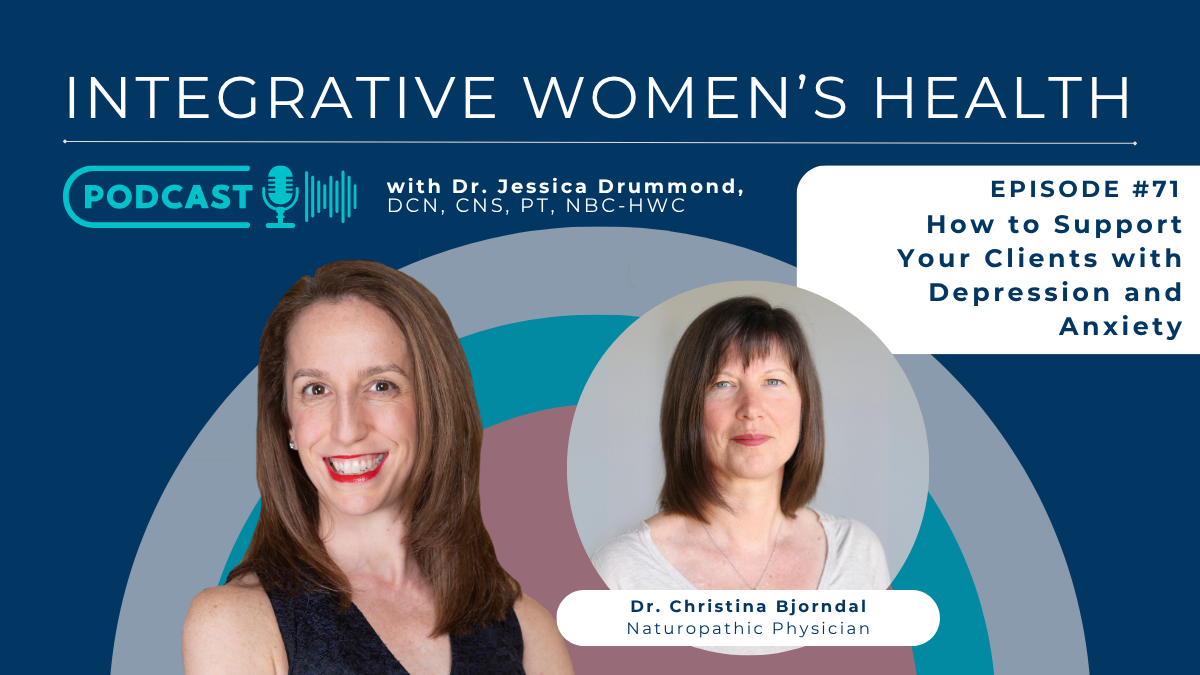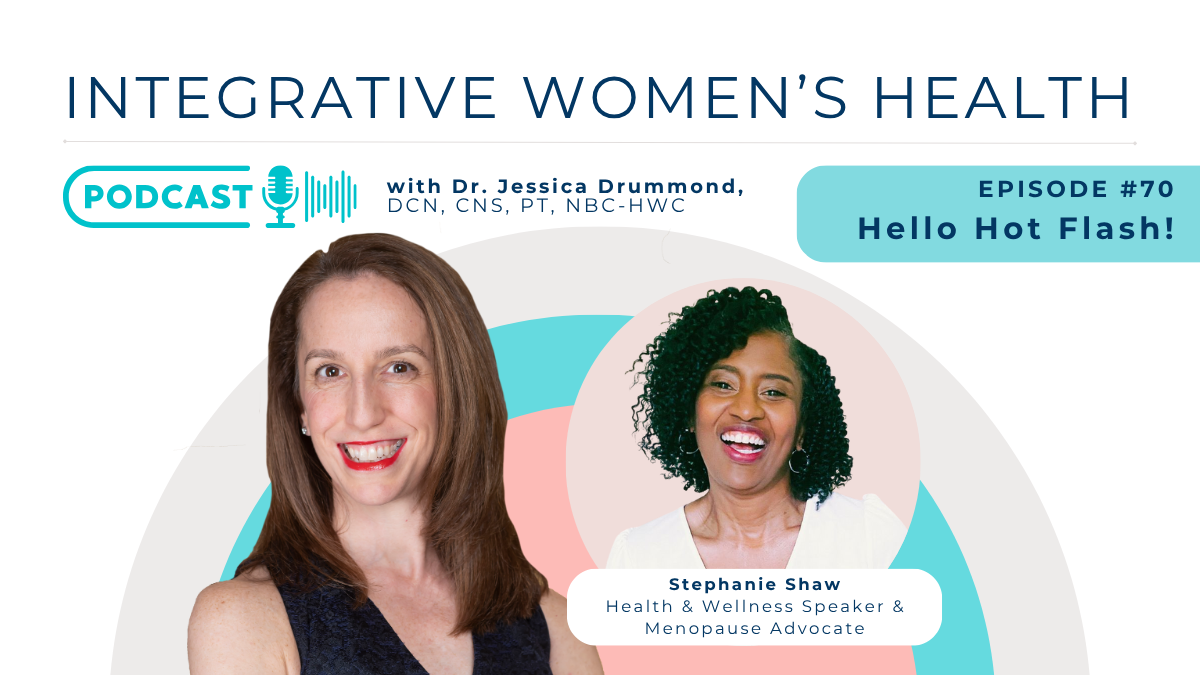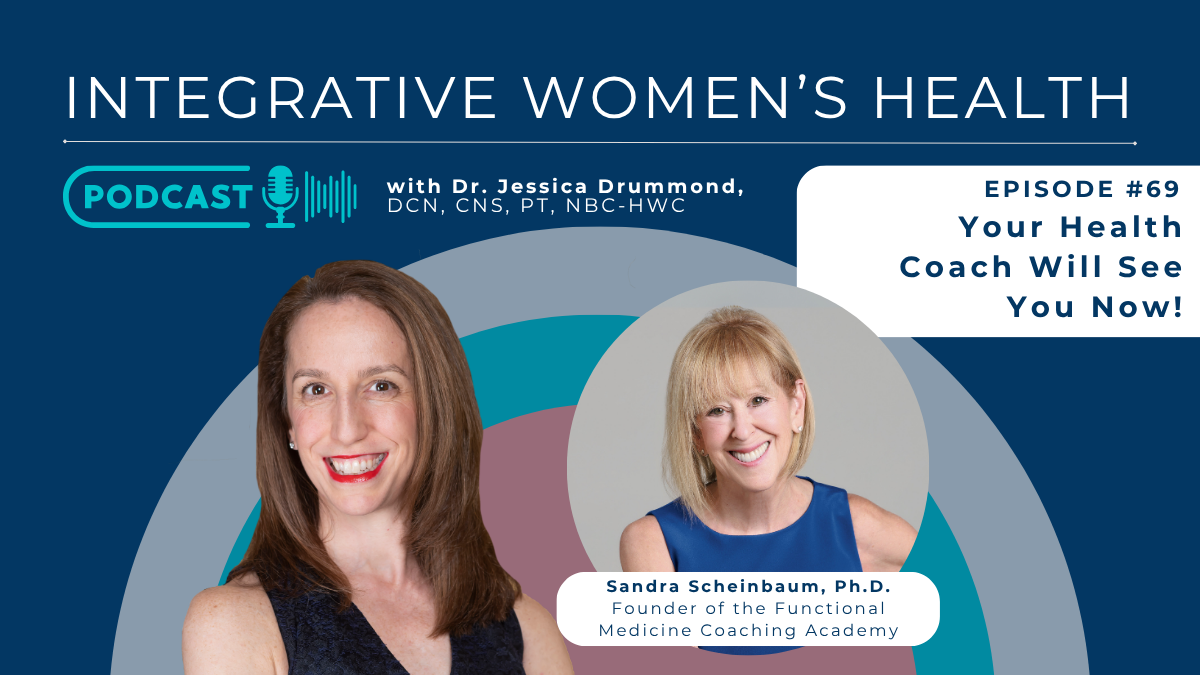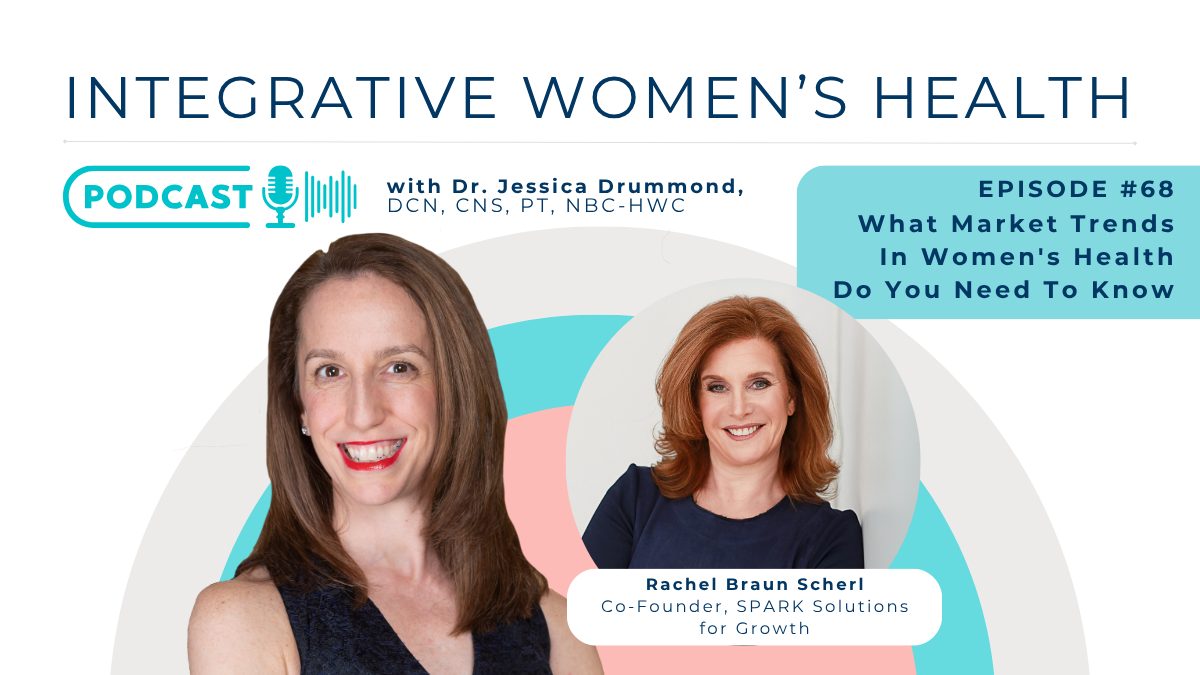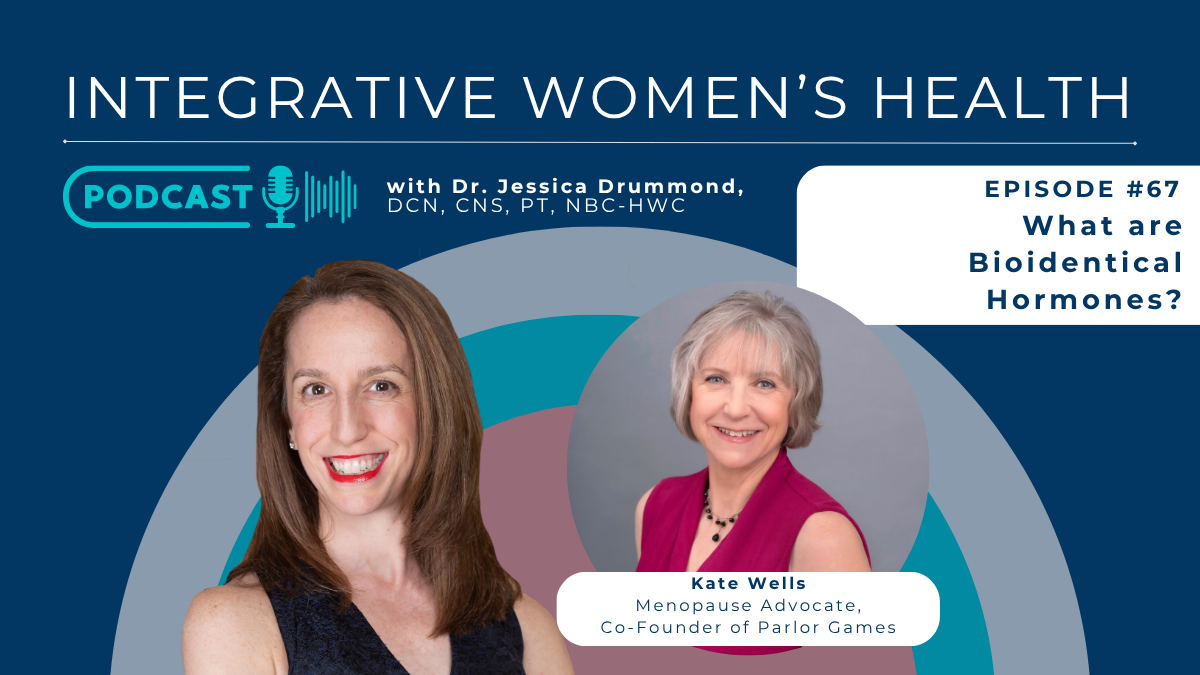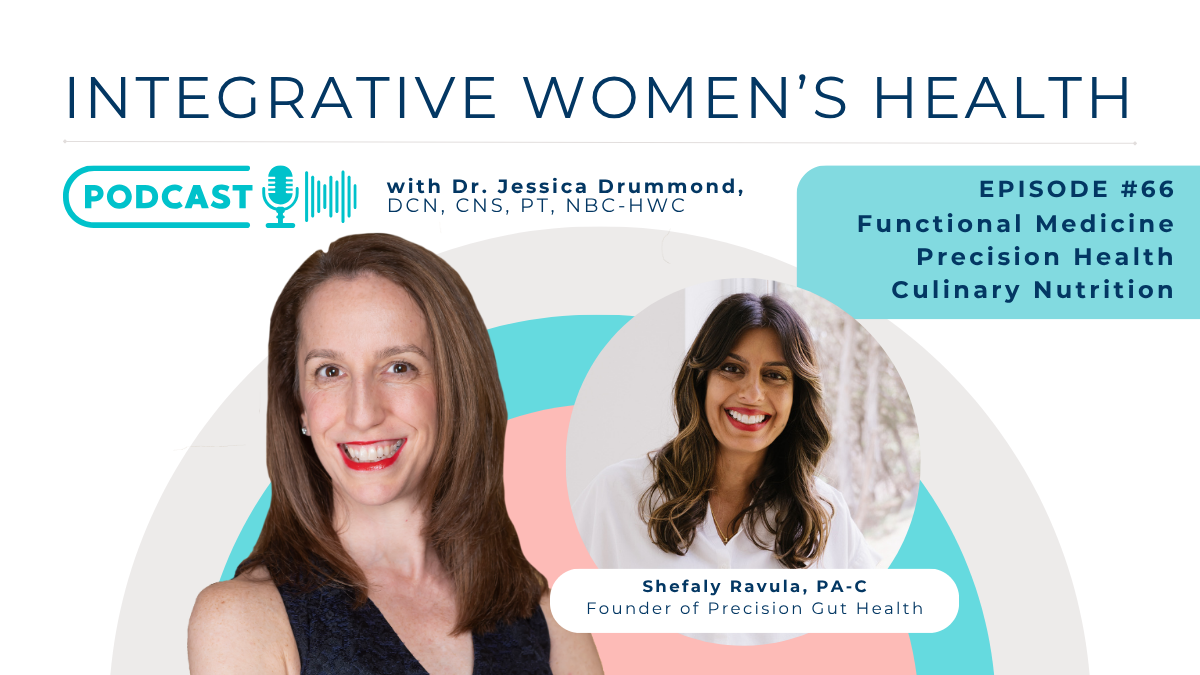The perimenopause and menopause transition mark a critical period in women’s health, with a variety of symptoms that can significantly impact overall quality of life.
Nutritional interventions, including dietary supplements, such as vitamins, minerals, and herbs can play a significant role in managing the common symptoms associated with menopause and perimenopause.
Here we will discuss some of the foundational supplements that will benefit women in the perimenopause and menopause transition.
Vitamin D
Assessing vitamin D levels annually is essential not only for bone health, but also for hormone health.
During perimenopause and menopause, bone density can decrease due to the decline in estrogen levels. Vitamin D, calcium, magnesium and potassium are essential nutrients that can help maintain bone and hormone health.

An optimal level of a The 25-hydroxy vitamin D blood test is between 70 and 90 ng/mL.
If serum levels are low, adding a daily supplement with 1000 IU – 10,000 IU daily of Vitamin D3 with 25 – 45 mcg of K2 will support both bone density and endocrine function.
This must be personalized to the needs of each client. Adding more time outdoors without sunscreen for 15 minutes per day between the hours of 11am and 3pm, especially during the summer months is also recommended for improving vitamin D levels.
Vitamin D is more than just a vitamin; it functions as a pro-hormone, meaning it has hormonal effects itself and is also a precursor to other hormones. Its role in regulating other hormones, including insulin, cortisol, estrogen, progesterone, and testosterone, is complex and multifaceted.
Join Dr. Jessica Drummond, the founder and CEO of the Integrative Women’s Health Institute, for an exclusive webinar designed for health and wellness professionals who aspire to excel in menopausal symptom management.
Dive deep into her proprietary and comprehensive, seven-step approach to managing perimenopause and menopause symptoms, especially for complex cases.
Insulin
Vitamin D plays a role in the regulation of insulin secretion. Vitamin D receptors (VDR) and vitamin D metabolizing enzymes are expressed in pancreatic β-cells, which produce insulin.
When vitamin D binds to its receptor in these cells, it enhances insulin secretion.
Studies have suggested that vitamin D deficiency can impair insulin secretion and lead to decreased insulin sensitivity, contributing to the development of metabolic syndrome.
Cortisol
The role of vitamin D in regulating cortisol, the primary stress hormone, isn’t entirely clear, and research is ongoing.
However, some studies suggest that vitamin D could help modulate the body’s stress response and cortisol production. Excessive cortisol levels can interfere with the function of vitamin D, leading to an apparent deficiency.
Maintaining adequate vitamin D levels may therefore contribute to balanced cortisol levels. And, optimizing the HPA Axis and cortisol levels are key to optimizing the action of vitamin D in terms of both hormone regulation and bone health.
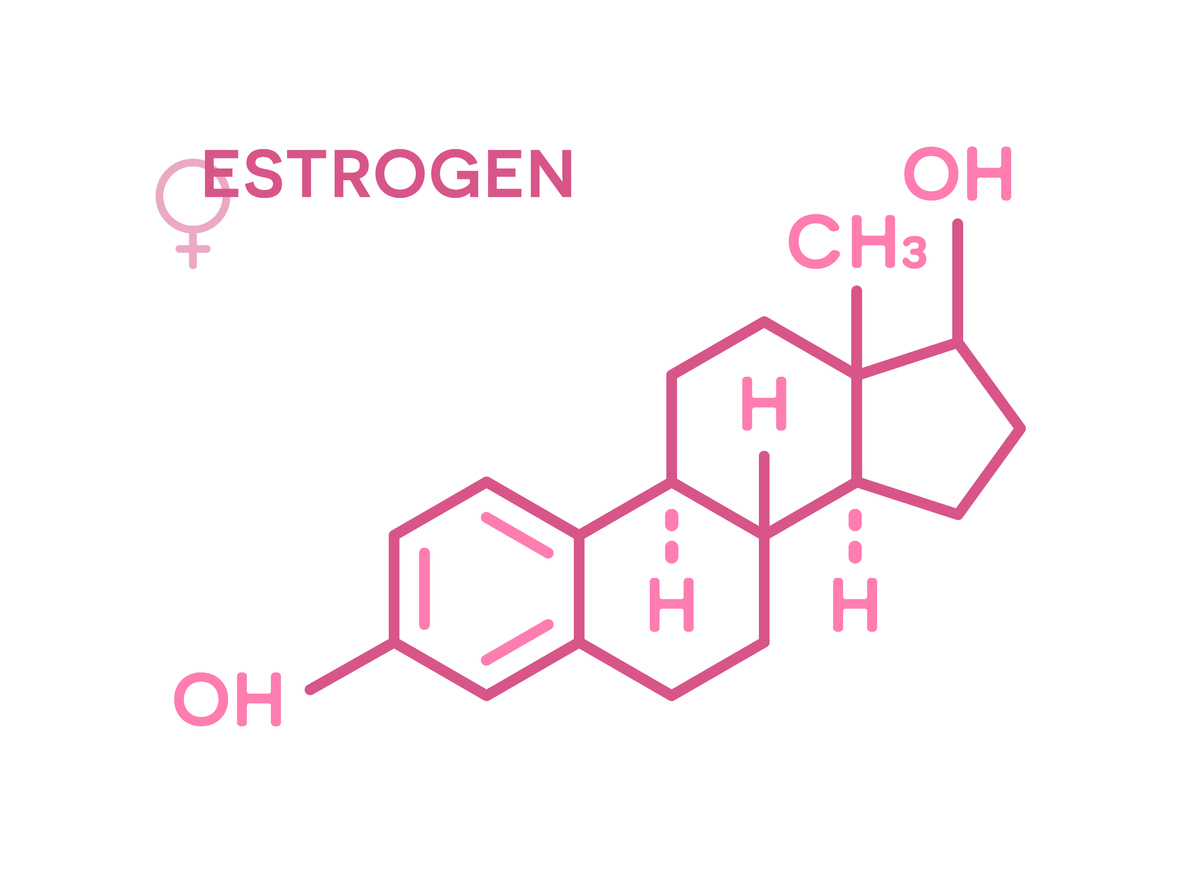
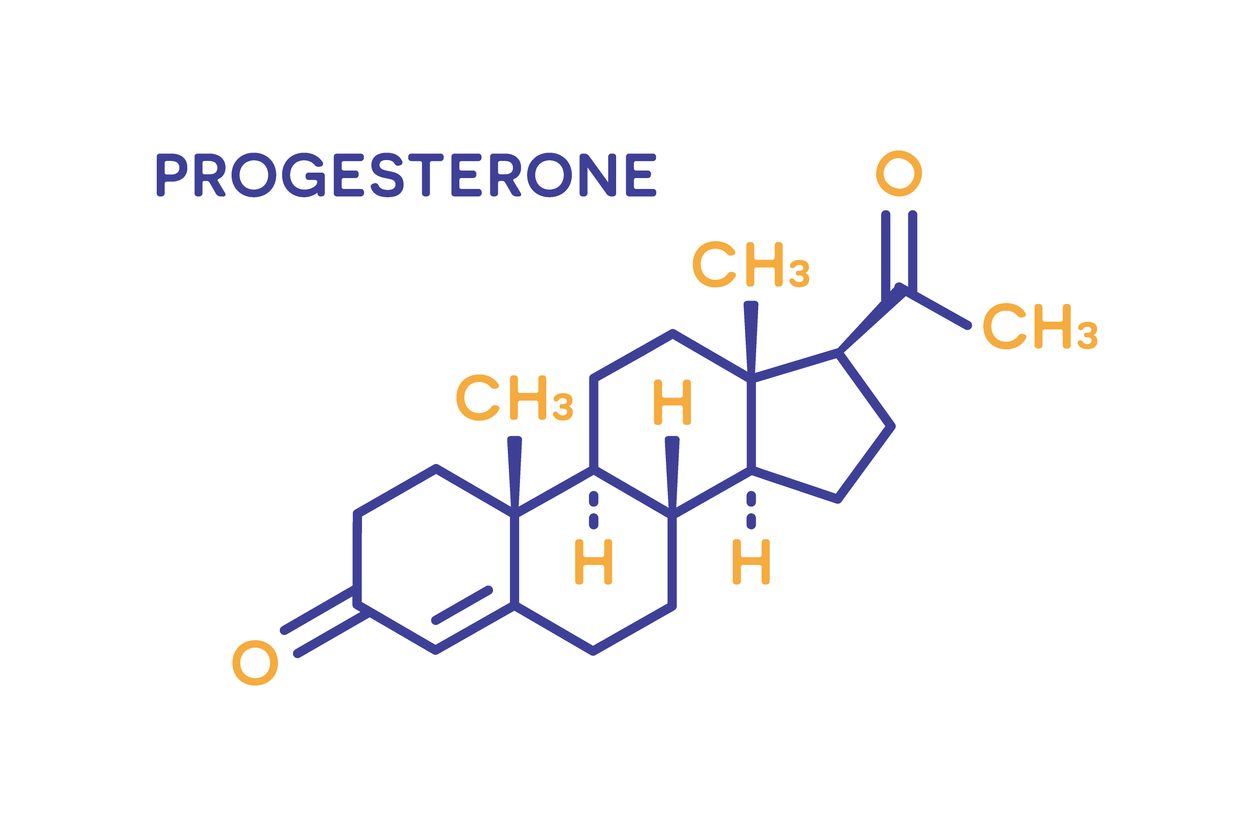
Estrogen and Progesterone
Vitamin D can influence the levels and activity of sex hormones, including estrogen and progesterone.
The ovaries and uterus have VDRs and enzymes that convert vitamin D into its active form (calcitriol). Some evidence suggests that vitamin D can inhibit the production of estrogen and progesterone.
This inhibition occurs because active vitamin D reduces the expression of the enzyme aromatase, which converts androgens into estrogens.
The effect of vitamin D on progesterone is less clear in the research as the data is conflicting. The interaction between estrogen and vitamin D at healthy levels is supportive for immune function.
Understanding the complex interactions of vitamin D with these hormones requires more research.
While maintaining adequate vitamin D levels seems to be beneficial for overall hormone health, it’s important to remember that hormonal regulation is a complex process involving many different factors.
Always consult with a healthcare provider before starting any supplementation regimen to ensure it’s safe and appropriate for your specific health needs.
Additionally, keep in mind that lifestyle factors, including diet, exercise, stress management, and adequate sunlight exposure, can significantly impact vitamin D levels and overall hormonal balance.

Omega-3 Fatty Acids
Omega-3 fatty acids, a type of polyunsaturated fat found predominantly in fatty fish like salmon, mackerel, and sardines, as well as in walnuts and flaxseeds, have been widely studied for their health benefits, including their potential to alleviate menopausal symptoms such as hot flashes and support cardiovascular health.
Hot flashes and Omega-3 fatty acids
Hot flashes, characterized by a sudden feeling of warmth spreading through the upper body and face, are among the most common symptoms of menopause.
They are believed to be related to the fluctuating hormone levels that occur during this period, particularly a decrease in estrogen levels, which seem to impact the hypothalamus, the part of the brain that acts as the body’s thermostat.
Low estrogen levels alone don’t independently trigger hot flashes.
Low estrogen combined with a less robust Hypothalamic-Pituitary-Adrenal Axis, reduced stress resilience, reduced nervous system regulation (less time resting in a parasympathetic recovery state), and exposure to triggers such as hot foods, stress, or hot environments, women can trigger hot flashes throughout perimenopause and menopause.
Omega-3 fatty acids may help reduce the frequency and severity of hot flashes. Although the exact mechanism is not fully understood, it’s believed that omega-3s can influence the production of eicosanoids, bioactive lipids that have hormone-like effects.
Omega-3 fatty acids are converted in the body to eicosanoids that tend to reduce inflammation. This may play a role in regulating the body’s thermostat and thereby reducing hot flashes.
A few studies have suggested that omega-3 supplements may help decrease the frequency of hot flashes and improve menopause-related quality of life.
However, more research is needed to confirm these findings and understand the mechanisms involved.
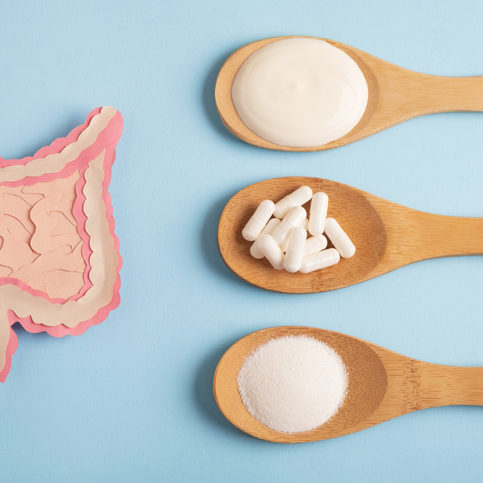
Prebiotics and Fiber
Fiber and prebiotics are essential foundational support for gut health.
Without healthy digestive function, hormone metabolism will be disrupted.
Prebiotics and dietary fiber play a crucial role in supporting overall health, including the management of menopausal symptoms and cardiovascular health, especially in women over 45.
Menopausal Symptoms
The connection between prebiotics, dietary fiber, and menopausal symptoms, such as hot flashes, lies primarily in their impact on the gut microbiota and hormonal balance.
Gut Microbiota
Prebiotics, which are a type of dietary fiber, serve as food for beneficial gut bacteria.
A healthy gut microbiota is crucial for general health and has been linked to a range of health conditions, including hormonal balance.
Some studies suggest that gut bacteria can modulate levels of estrogen in the body, which may influence menopausal symptoms.
Hormonal Balance
Fiber can bind to estrogen in the gastrointestinal tract. The bound estrogen is then more efficiently excreted from the body, helping to maintain a balanced level of estrogen.
This helps manage menopausal symptoms caused by fluctuating estrogen levels.
Blood Sugar Regulation
Dietary fiber can slow the absorption of sugar into the bloodstream and prevent spikes in glucose and insulin. This helps manage symptoms like hot flashes, which can be triggered by blood sugar swings.
Cardiovascular Health and Omega-3 fatty acids
In terms of cardiovascular health, omega-3 fatty acids have been shown to provide several benefits, which can be particularly important as heart disease risk increases after menopause. Here’s how they work:
Anti-inflammatory Action
Omega-3 fatty acids can produce resolvins and protectins, which are powerful anti-inflammatory compounds. By reducing inflammation, they can help to protect against damage to blood vessels that can lead to heart disease.
Using supplemental specialized pro-resolving lipid mediators (SPM’s) are even more potent versions of omega-3 fatty acids for reducing inflammation.
Reducing Triglycerides
Omega-3 fatty acids can significantly reduce blood levels of triglycerides. High levels of triglycerides can increase the risk of heart disease.
Blood Pressure Reduction
Regular intake of omega-3 fatty acids can help reduce blood pressure levels, one of the key risk factors for heart disease.
Preventing Blood Clots
Omega-3s may make platelets in the blood less likely to clump together and form clots, which can block arteries and lead to heart attacks or strokes.
Reducing Irregular Heartbeats
Omega-3s have been associated with a lower risk of arrhythmias (abnormal heartbeats), which can lead to sudden death. In women, morbidity and mortality from atrial fibrillation is higher risk than men.

Cardiovascular Health
Dietary fiber and prebiotics are also beneficial for cardiovascular health for women over 45 in several ways:
Cholesterol Reduction
Soluble fiber can help lower low-density lipoprotein (LDL), or “bad” cholesterol levels. It does this by binding to dietary cholesterol and bile in the gut and supporting their elimination.
Blood Pressure Regulation
High-fiber diets are associated with lower blood pressure levels.
While the exact mechanism isn’t fully understood, it’s believed to involve the production of short-chain fatty acids by specific gut bacteria species during fiber fermentation.
Thus, for some women adding dietary fiber and prebiotic foods and supplements will not be enough, but specific probiotic supplementation will be essential for this key fermentation function of gut bacteria.
Gut Health and Inflammation
A healthy gut microbiota, supported by prebiotics, can improve systemic inflammation, reducing cardiovascular disease risk.
By integrating these key nutrients as supplements, in foods, and through lifestyle strategies such as safe sun exposure, into a complete functional medicine approach, you can offer your patients comprehensive support during menopause and perimenopause.
It’s essential to remember that every woman is unique and will experience menopause and perimenopause differently.
Personalized, patient-centered care is crucial during these times.
That’s why our certificate program doesn’t only equip you with knowledge about supplements and vitamins but also teaches you about the importance of coaching communication skills, lifestyle factors like stress management, sleep, and specific exercise and recovery protocols, hormone replacement therapies, and biohacking tools like red light therapy, sauna, cold immersion, and more in managing menopause symptoms.
Read More Perimenopause and Menopause Blogs
Can You Get Pregnant During Perimenopause?
Solutions for Vulvovaginal Atrophy
Exercise and Hormones in Women Over 40
References
Knight, J. A., Wong, J., Blackmore, K. M., Raboud, J. M., & Vieth, R. (2010). Vitamin D association with estradiol and progesterone in young women. Cancer causes & control : CCC, 21(3), 479–483. https://doi.org/10.1007/s10552-009-9466-0
Borborema, M. E. A., Lucena, T. M. C., & Silva, J. A. (2023). Vitamin D and estrogen steroid hormones and their immunogenetic roles in Infectious respiratory (TB and COVID-19) diseases. Genetics and molecular biology, 46(1 Suppl 2), e20220158. https://doi.org/10.1590/1415-4757-GMB-2022-0158
Harmon, Q. E., Kissell, K., Jukic, A. M. Z., Kim, K., Sjaarda, L., Perkins, N. J., Umbach, D. M., Schisterman, E. F., Baird, D. D., & Mumford, S. L. (2020). Vitamin D and Reproductive Hormones Across the Menstrual Cycle. Human reproduction (Oxford, England), 35(2), 413–423. https://doi.org/10.1093/humrep/dez283
Mohammady, M., Janani, L., Jahanfar, S., & Mousavi, M. S. (2018). Effect of omega-3 supplements on vasomotor symptoms in menopausal women: A systematic review and meta-analysis. European journal of obstetrics, gynecology, and reproductive biology, 228, 295–302. https://doi.org/10.1016/j.ejogrb.2018.07.008
Palacios, S., Lilue, M., Mejia, A., & Menendez, C. (2017). Omega-3 versus isoflavones in the control of vasomotor symptoms in postmenopausal women. Gynecological endocrinology : the official journal of the International Society of Gynecological Endocrinology, 33(12), 951–957. https://doi.org/10.1080/09513590.2017.1332588
Kumar, V., Yasmeen, N., Chaudhary, A. A., Alawam, A. S., Al-Zharani, M., Suliman Basher, N., Harikrishnan, S., Goud, M. D., Pandey, A., Lakhawat, S. S., & Sharma, P. K. (2023). Specialized pro-resolving lipid mediators regulate inflammatory macrophages: A paradigm shift from antibiotics to immunotherapy for mitigating COVID-19 pandemic. Frontiers in molecular biosciences, 10, 1104577. https://doi.org/10.3389/fmolb.2023.1104577
Madan, N., Itchhaporia, D., Albert, C. M., Aggarwal, N. T., & Volgman, A. S. (2019). Atrial Fibrillation and Heart Failure in Women. Heart failure clinics, 15(1), 55–64. https://doi.org/10.1016/j.hfc.2018.08.006
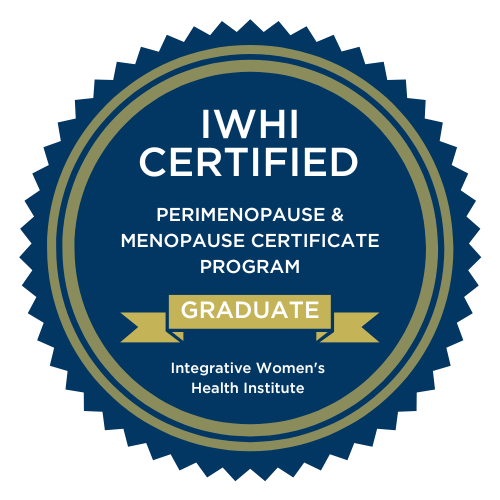
BECOME A MENOPAUSE EXPERT
IN 6 MONTHS OR LESS!
Fast-track to becoming a specialized perimenopause and menopause expert in under six months.
Receive an authenticated certificate to display on your website and in your office upon program completion.
Stand out in the marketplace as a practitioner who specializes in the management and treatment of perimenopause, menopause and associated symptoms and conditions.

Dr. Jessica Drummond
Founder & CEO
The Integrative Women’s Health Institute
At the Integrative Women’s Health Institute, we’ve dedicated 17 years to crafting evidence-driven, cutting-edge programs that empower practitioners like you to address the complexities of women’s health.
Dr. Jessica Drummond’s unique approach focuses on functional nutrition, lifestyle medicine, movement therapies, nervous system dysregulation, trauma, and mindset – essential elements often overlooked in traditional health education.
In addition, your training will be fully evidence based, personalized, and nuanced (this is not a cookie cutter approach) in functional nutrition, exercise, recovery, cellular health, and all other lifestyle medicine tools.
You’ll learn to support your clients with cutting edge tools safely and effectively.

